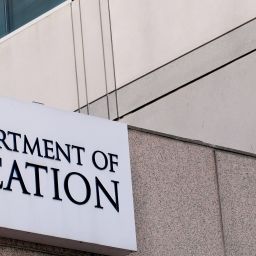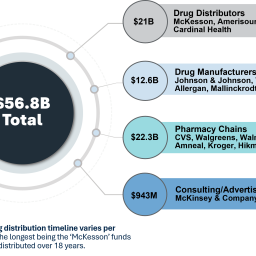
What are the Implications of the Public Service Loan Forgiveness (PSLF) Proposed Rule?
If your nonprofit relies on the Public Service Loan Forgiveness (PSLF) program to attract and retain talented staff, you’ll want to know about a new proposed rule from the U.S. Department of Education. This rule could change who qualifies for PSLF and potentially exclude nonprofits based on their mission.
What is Public Service Loan Forgiveness? Who is Eligible?
The Public Service Loan Forgiveness Program (PSLF) was created in 2007 to help reduce student loan debt for government (federal, state, local, or tribal) and 501(c)(3) nonprofit employees. Under PSLF, once employees have made 10 years of qualified payments, the Department of Education will forgive their remaining Direct Loan balance.
To qualify for this program, individuals must work as a full-time public service or nonprofit employee. For more information and guidance on eligibility for the PSLF program, check out the National Council of Nonprofits’ resource.
What is the Proposed Rule on Public Service Loan Forgiveness?
On August 18, 2025, the U.S. Department of Education issued a proposed rule that would exclude employers engaging in activities with a “substantial illegal purpose” from the Public Service Loan Forgiveness program. This proposed rule is in response to President Trump’s executive order “Restoring Public Service Loan Forgiveness” posted on March 7, 2025.
The new rule would exclude employers from the PSLF program if they are engaged in activities that do not align with the Administration’s priorities or are deemed as “substantial illegal purposes,” which are listed below:
- “Aiding and abetting violations of federal immigration law.”
- "Supporting terrorism.”
- “Engaging in the chemical castration and surgical mutilation of children in violation of federal or state law,” as defined in Executive Order 14187: Protecting Children From Chemical and Surgical Mutilation, which includes the use of puberty blockers, sex hormones, and surgical procedures.
- “Engaging in a pattern of aiding and abetting illegal discrimination,” meaning a violation of any Federal discrimination law.
- “Engaging in the trafficking of children for purposes of emancipation from their lawful parents in violation of federal or state law.”
- “Engaging in a pattern of violating state laws,” including “trespassing, disorderly conduct, public nuisance, vandalism, or obstruction of highways.”
Why the Proposed PSLF Rule Matters to Nonprofits
The National Council of Nonprofits raised concerns that nonprofits may be excluded based on their mission, such as supporting transgender youth or undocumented immigrants. This can limit nonprofits’ services and reduce the number of people willing to work in public service.
The rule will likely face legal challenges because current federal law allows all nonprofits to be eligible for the PSLF program, no matter their services.
The proposed rule would take effect on July 1, 2026.
What Can Nonprofits Staff and Employees Do About the Proposed Rule?
Since the rule is not finalized, nonprofits and government employees can make their voices heard by submitting a public comment before the deadline on September 17, 2025.
- Submit your public comment using the green button at the top of the Federal Register posting.
- Refer to the National Council of Nonprofits’ PSLF Comment Guide for further information.
The Department of Education is required respond to the submitted comments and address the concerns.
McAllister & Quinn Can Help Your Nonprofit Succeed
We’ve helped our clients secure over $17 billion in federal, state, local, and foundation awards, and more than $1 billion in Congressionally Directed Spending. We also provide our clients with advanced and strategic intelligence.
Our nonprofit clients range from social service organizations to museums to workforce development programs – and everything in between. We’ve helped small nonprofits grow efficiently and larger nonprofits expand state-wide or nationwide. Let us help your nonprofit grow today.

Anna Kuzmic
Anna Kuzmic is a Research Analyst for the Nonprofit Practice. She works with the Managing Director and Directors to align clients with federal grant and foundation funding opportunities. In this role, she conducts research, develops strategy, and supports client needs.












